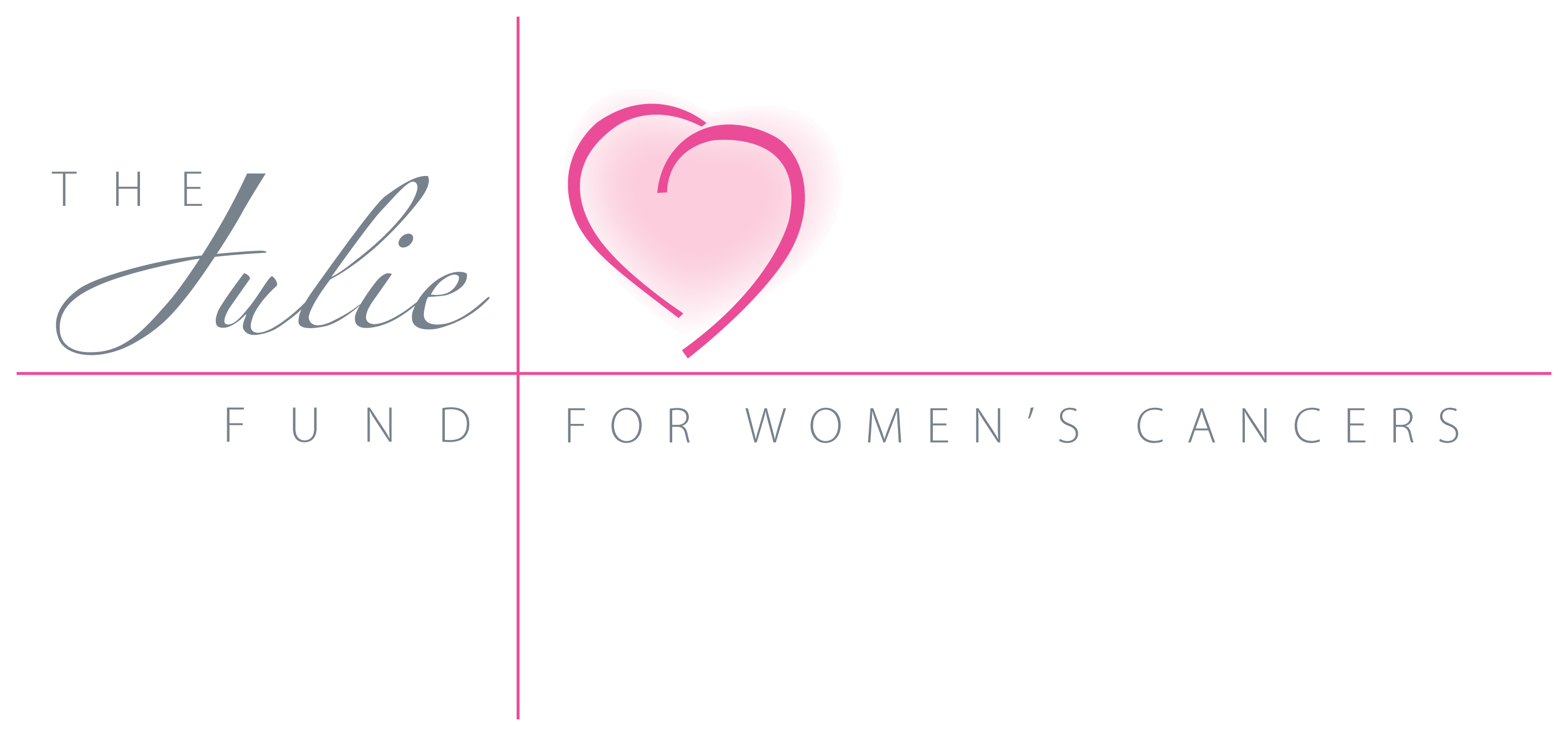
The Julie Fund for Women's Cancers Charges into its Second Decade

Ten years after founding The Julie Fund for Women's Cancers, President Peter McAvinn's resolve is stronger than ever.
Ten years after founding The Julie Fund for Women’s Cancers, President Peter McAvinn’s resolve is stronger than ever. “We live in Boston, the city with the best medical care in the world, and Julie was completely unaware of the signs of cancer, particularly ovarian cancer.” Wellesley resident Julie McAvinn, 40 years old and mother of three small children when she got her diagnosis, noticed so many patients didn’t have the support during treatment that she did. She wished for them the same level of support. Together, she and Peter outlined an organization that fights women’s cancers in three spaces: education, research, and patient support.
Strength
The Julie Fund for Women’s Cancers has impacted thousands of lives through its social services—providing rent, mortgage payments, food, transportation, clothing, utilities, and childcare to cancer patients undergoing treatment and experiencing an unexpected financial need. Julie Fund recipient Pat Wheeler knows firsthand the “devastation of a cancer diagnosis. It is completely shocking to both the mind and the spirit. When one person is diagnosed, every person in their family is diagnosed. The Julie Fund’s support allowed my husband, who is self-employed, to stay at home and be the caregiver for me and my two young children, who were three and five years old. Without The Julie Fund, he would not have been able to do that.” Now a graduate student, Pat recently took her son with her to a Cancer Walk. At mile four she could tell he was fading and asked him if he wanted to stop. “No, Mommy. You fight every day against your cancer and I want to be a fighter, just like you.”
Hope
Half the money raised by The Julie Fund goes directly to research initiatives focused on a cure for women’s cancers. All projects are reviewed and endorsed by The Julie Fund’s Scientific Advisory Board, led by Wellesley resident Dr. Michael Birrer, MD/PhD and Director of Gynecologic Oncology at Massachusetts General Hospital. Dr. Birrer underscores the impact of the chosen research initiatives: “There has been a significant change in what we understand about ovarian cancer and our ability to effectively treat women with ovarian cancer. This extends from recent discoveries about where ovarian cancer comes from and some of it if actually coming from the fallopian tube.” He values the partnership between The Julie Fund and Mass General/Harvard, noting that clinical trials are much more difficult to fund that research in the lab. “Industry partners, such as The Julie Fund, make this research possible.” Birrer continues, “I can say emphatically that The Julie Fund for Women’s Cancers is the single largest contributor to ovarian cancer research at Massachusetts General Hospital, providing consistent targeted funding, which has been critical to our contributions in this field.”
Courage
Two-time ovarian cancer survivor Bonnie Marinaccio knows firsthand that “cancer can take away my career, my stamina, my memory and so many other things, but it cannot take away my fighting spirit.” She remembers her “life changing from one day being financially secure to a world where we were dipping into our savings. That’s when The Julie Fund helped me. They paid for a month of my medical insurance.” Just like Julie, Bonnie initially didn’t even know she was sick with cancer. “I knew I was ill, but thought it was a cold, pneumonia perhaps.” Beyond social services and research, The Julie Fund for Women’s Cancers is focused on raising awareness of women’s cancers. Knowledge is power, and power fuels courage.
Check out The Julie Fund’s new awareness piece, The Five Most Prevalent Women’s Cancers, at
Selflessness
While undergoing treatment in 2003, Julie outlined the mission for The Julie Fund: Funding meaningful research to fight women’s cancers, providing money to families battling women’s cancers, and increasing awareness. Ten years later, the mission remains exactly the same.




